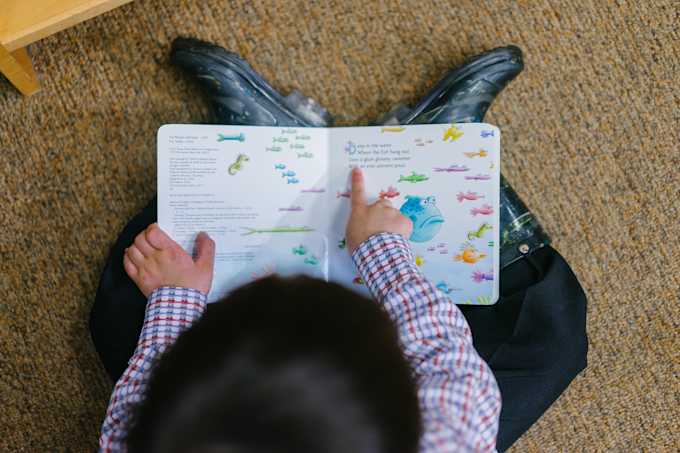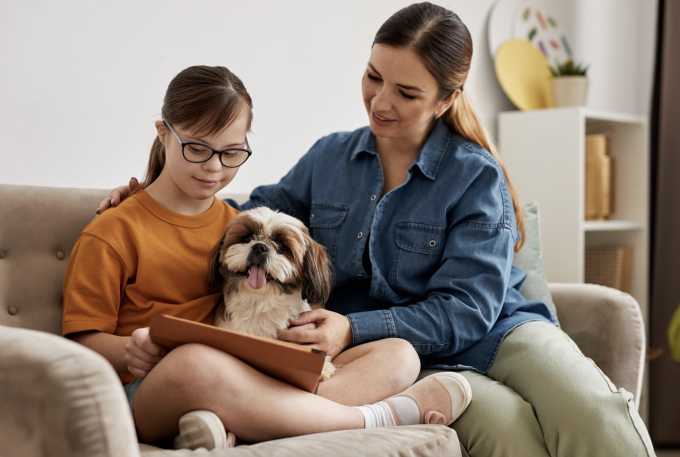A Friend Like Simon by Kate Gaynot

A Friend Like Simon untangles autism for young readers through its simple and joyful approach. Simon is a young child with autism who joins a mainstream school, where his peers are unsure of him because Simon is “different.” This picture book challenges children to be patient with and kind to others by emphasizing that a little understanding goes a long way. A Friend Like Simon eases younger audiences into the topic of autism by placing it in a familiar place—the classroom—and shows us that even “different” kids can be our friends.
Uniquely Human: A Different Way of Seeing Autism by Barry M. Prizant, Ph.D

Leading ASD researcher and clinician Barry Prizant challenges us to shift our thinking about autism by viewing troublesome symptoms within their broader context. Prizant argues that, rather than blindly correcting difficult behaviors in people with autism, parents and health practitioners should see symptoms as reactions, or coping mechanisms, and thus focus on helping people by first understanding. Prizant’s profound approach brings autism into the sphere of “being human,” thereby shedding the stigma and marginalization that accompanies many autism diagnoses. Uniquely Human is a fantastic resource for parents and is on its way to becoming a standard in special education literature.
Aspergers From the Inside Out: A Supportive and Practical Guide for Anyone with Asperger’s Syndrome by Michael John Carley

Michael John Carley was diagnosed with Asperger’s at the age of 39, at the same time when his son, age 4, was diagnosed with autism. In this part-autobiography and part-guidebook, Carley documents how he “came to terms” with his new diagnosis and, subsequently, deconstructed his past experiences by placing them within the larger framework of his disorder. He also offers advice for adults with autism, like tips for job interviews and how to get support for mental health issues, which often accompany autism. Carley’s book provides a unique voice to autism literature that appeals to adults with autism and parents of children with autism.
The Survival Guide for Kids with Autism Spectrum Disorders (And Their Parents) by Elizabeth Verdick and Elizabeth Reeve, M.D.
 This book, meant to be read together with parents, aims to be a resource for all things autism, including understanding the disorder and developing tools for managing it. The Survival Guide focuses on self-acceptance, communication, and teaching kids how to get the support they need. This guide covers a range of topics, from day-to-day actions like hygiene, sleep, and eating to more comprehensive subject matter like communication, emotions, and behavior. The book’s multifaceted approach includes a glossary, checklists, fact boxes, and anecdotes to help kids solidify what they’ve learned and to act as a quick-reference.
This book, meant to be read together with parents, aims to be a resource for all things autism, including understanding the disorder and developing tools for managing it. The Survival Guide focuses on self-acceptance, communication, and teaching kids how to get the support they need. This guide covers a range of topics, from day-to-day actions like hygiene, sleep, and eating to more comprehensive subject matter like communication, emotions, and behavior. The book’s multifaceted approach includes a glossary, checklists, fact boxes, and anecdotes to help kids solidify what they’ve learned and to act as a quick-reference.
The Asperkid’s (Secret) Book of Social Rules: The Handbook of No-So-Obvious Social Guidelines for Tween and Teens with Asperger Syndrome by Jennifer Cook O’Toole.
 The Survival Guide is appropriate for kids in elementary and middle schools. For older children and teens, we recommend this book.
This illustrated “handbook” tackles social skills from a funny, yet respectful (and above all, useful) angle meant to detangle social rules that often perplex individuals with autism.
The Survival Guide is appropriate for kids in elementary and middle schools. For older children and teens, we recommend this book.
This illustrated “handbook” tackles social skills from a funny, yet respectful (and above all, useful) angle meant to detangle social rules that often perplex individuals with autism.




